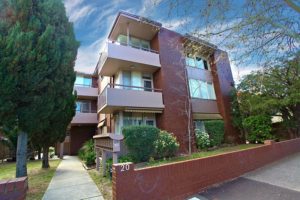New 7.5% Short Stay Tax (or “Airbnb tax”) for Victoria
More Taxes for Victorian Property Owners
From 1st January 2025, the Victorian Government will charge a 7.5% tax on income generated from short-stay rentals. Additionally, tighter restrictions on short stays will be imposed in the hope of freeing up more housing for long-term renters or encouraging owners to sell. New rules will allow both councils and owners’ corporations to restrict or ban short-stay rentals altogether.
Specifically, an owners’ corporation (OC) could decide to ban or limit short-stay rentals. Total bans are more likely as it is difficult for an OC to monitor short-stay rentals. These changes may lead to apartment owners feeling strongly enough about Airbnb rentals in their building to ban them.
Why would an OC want to ban short-stay rentals? It’s not so much the occasional disruption a short-stay guest may cause, but more the extra security risk it creates, as well as the frequent turnover of different people and cleaners using the corridors, lifts, and car parks. As a result, residents report feeling less safe.
The unsightly littering of lockboxes/key safes at the front door of apartment buildings, hanging off fences, gates, and poles, upsets permanent residents. When there are a lot of short-stay rentals in a building, it can feel like a boarding house and damage the presentation and amenity of the property.
Some OCs already make it difficult for owners to offer their apartments for short stays. Lockboxes can be removed from common areas. There are also existing measures that OCs can use to control the use of common areas or breach owners and their guests who don’t follow the building rules.
What Will These Changes Mean?
These changes raise several questions:
- If investors are weighing up short-stay vs long-stay rentals, will these new taxes tip them towards long-term rentals?
- Is an apartment worth more if the building has banned short-stay rentals?
- If you were looking to buy an apartment to live in, would you prefer to buy in a building that bans short-stay rentals?
- What does this mean for serviced accommodation?
- How will the hotel industry respond? Will they increase tariffs as supply dwindles?
As buyers’ agents, we represent people in transition from one property to the next, and some clients need to rent short-term accommodation between properties and require the flexibility of short-stay rentals. People returning from overseas often use this type of accommodation until they secure their new home.
Global Approach to Short Stays
Councils are unlikely to ban short-stay rentals entirely; however, many may choose to manage or control them in some way. Many cities around the world have put in place controls or restrictions with fines on short-stay rentals. Cities like Barcelona, Paris, New York, Berlin, Amsterdam, London, San Francisco, and others have controls to manage the amenity of the city or protect the supply of longer-term accommodation. High-tourist cities have been most impacted by short-stay rental use. Some cities have implemented a registration or permit system to limit short-stay rentals. For instance, Bass Shire Council in Victoria requires registration of all short-term rental properties.
So, What’s Next for Property Owners?
If you own an apartment or house rented for short stays, what will you do? Assuming your OC and council don’t ban it, you’ll be hit with an extra tax of 7.5%. If other short-stay owners withdraw their properties due to the extra cost and restrictions, the price of short-stay rentals might increase more than the 7.5% tax. Only time will tell.
It’s uncertain how these changes will impact individual owners. While those who rely on platforms like Airbnb may face higher costs, even owners with direct bookings could be subject to the 7.5% tax, depending on how the government monitors and enforces this new regulation.
This tax and the associated restrictions could be a blow to the tourism industry and many regional areas that rely on visitors. Tourists bring valuable economic benefits.
These changes are part of a Bill being introduced to the Victorian Government, currently supported by the Greens.
More information can be found here – https://www.abc.net.au/news/2023-09-20/airbnb-victorian-tax-properties-short-stay-rental/102878180 and most recently – https://www.abc.net.au/news/2024-08-27/housing-policy-airbnb-regulations-victoria/104273174
Buyers Advocate, Buyers Agent, Buying property, Housing Market, Investment, Investment property, Landlords, Real Estate News & Opinion

 +61 39816 8555
+61 39816 8555